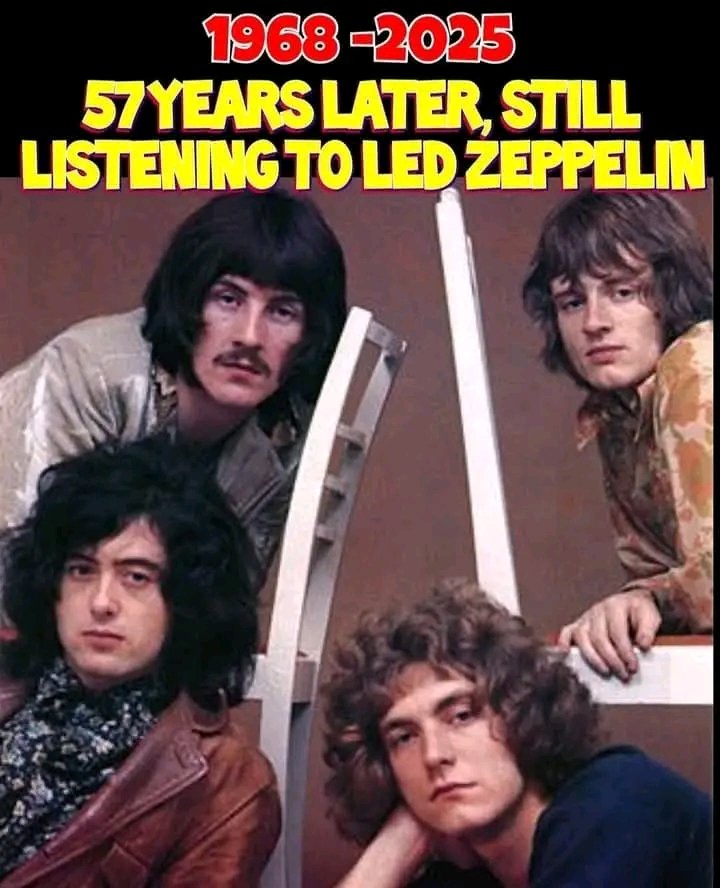“Let Them Be Themselves”: Jimmy Page Reflects on Led Zeppelin’s Origin Story and the Creative Freedom That Forged Rock History
In a candid and reflective recent interview, Jimmy Page opened up about the earliest days of Led Zeppelin—a band that wasn’t just formed, but rather ignited by a vision of musical liberation and authenticity. Long before the world knew them as the architects of a new era in rock, Page was laying the foundation for something revolutionary: a group built not on formulas, but on trust, raw talent, and the freedom to be unapologetically themselves.
When Page first conceived what was initially dubbed The New Yardbirds, he wasn’t simply looking to continue his career after the dissolution of The Yardbirds. He had something far more radical in mind. With the support of the fiercely loyal and visionary manager Peter Grant, Page wanted to create a band that broke free of the commercial molds and constraints of the British rock scene at the time. The goal was total creative freedom—an unshackled space where music could evolve organically, shaped by the instincts of its players rather than industry expectations.
That vision took form almost instantly. Page vividly recalled the moment when it all clicked: the first rehearsal. “I said, ‘Let’s play *Train Kept A-Rollin’,’” he said, referencing a blues-rock standard that had history with The Yardbirds. “It didn’t matter who had played it before or who knew it. I was going to drive it forward.” What followed was a session that barely paused for breath—an eruption of chemistry so electric, it became undeniable. “We didn’t stop playing,” Page recalled. “I was trading off with Robert [Plant], and from that first moment, it was clear—it was destined to be.”
That initial rehearsal wasn’t a one-off lightning strike—it was the spark that ignited the full flame. Page took Plant to his home in Pangbourne to continue refining their sound, and the momentum only intensified. But perhaps the most revealing insight into Page’s leadership came in his description of how he approached the band’s rhythm engine, drummer John Bonham. “I told Bonham, ‘I want you to play drums exactly how you want to play,’” Page said. “Not like you’ve played for others—but how you feel, as John Bonham.” That kind of trust wasn’t common at the time—and it paid off. Bonham’s unique style became one of the most recognizable and influential drum sounds in rock history.
This foundational principle—of embracing the natural instincts of each band member—became the bedrock of Led Zeppelin’s creative process. “I knew what the band could do,” Page explained, “so when I was writing for each album, I was writing for them. I’d bring in riffs and chord changes and just say, ‘Let’s go,’ and we’d immediately be in the zone.” That “zone” would become sacred ground for fans of hard rock, blues, psychedelia, and everything in between. It was in that space—where freedom met chemistry—that songs like “Whole Lotta Love,” “Dazed and Confused,” and “Kashmir” were born.
What Page’s reflections make abundantly clear is that Led Zeppelin wasn’t just a band—it was an ecosystem of trust, respect, and mutual inspiration. From their explosive debut album to their legacy as one of the most influential bands in history, the core principle remained unchanged: let brilliant musicians be their authentic selves, and the music will not only speak—it will roar.
